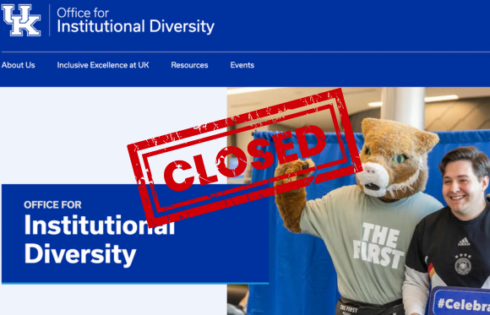
University president disagrees with the findings
Mississippi public universities should reorient degree programs to focus on career-readiness and the legislature should study the issue further, according to a report from the state’s auditor.
“Plugging the Brain Drain: Investing in College Majors That Actually Work,” highlights job stats for majors like women’s studies, African/black studies, and German language and literature. These graduates are not securing jobs in the Mississippi economy,” the auditor’s report stated.
“If all degree programs placed just 50.1% of its recent graduates in Mississippi based jobs, the state’s payroll activity could increase by over $75 million annually,” Auditor Shad White wrote.
The report highlighted majors and degrees in fields like engineering and nursing where graduates make well above the median entry-level income for graduates in Mississippi and suggested funding allocation for degree programs should be based on entry job success and wage growth.
White wrote “taxpayers should know which graduates experience wage growth before investing dollars into degree programs… students should do the same.” He called for a task force to study the issue of career-readiness, similar to the one Texas created.
The auditor’s office has not responded to two requests for comment sent by The College Fix in the past month that asked for further comment and the motivation behind the report.
The president of Mississippi State University disputed the claim of a “brain drain.”
The Fix reached out and asked how the university could better suit Mississippi economy’s needs and if there was any additional context to provide.
The media team directed The Fix to President Mark Keenum’s comments in the Magnolia Tribune, in which he elaborated on the many ways Mississippi State is preparing its graduates for a changing workforce, highlighting its agriculture, engineering, and meteorology programs.
“Rankings, reports, and rhetoric never fully tell the true story of what a university like Mississippi State is doing,” Keenum wrote, in apparent allusion to the auditor’s report.
“Employers are actively seeking graduates with technical proficiency, communication skills, and the ability to think critically,” Keenum wrote. “That’s what a well-rounded, comprehensive higher education is all about, and that’s what we strive to provide on our campus.”
Technical programs thrive in the MSU system, “[b]ut MSU, likewise, is proud of our faculty and staff who help our students excel in the humanities,” Keenum wrote.
MORE: College grads not ’emotionally ready’ for work
Keenum also provided a data point overlooked in the auditor’s report.
“94% of 2021-22 graduates reported being employed or that they are pursuing advanced degrees within the first six months after graduation,” Keenum wrote.
The University of Mississippi’s media relations office did not respond to two requests for comment sent in the past month.
The Fix emailed the Mississippi State gender studies department and asked if there was anything overlooked by the report and if the cost of pursuing low-salary degrees could be reduced to better match the expected return on investment.
“We cannot simply equate the value of an education with a graduate’s salary,” Kimberly Kelly, the director of the gender studies program at Mississippi State, told The Fix via email on Oct. 24.
Kelly also said Mississippi State only offers an undergraduate minor in gender studies and acknowledged the reality of the brain drain while providing a few ways Mississippi could address it.
“Many of the challenges the state of Mississippi faces are deeply gendered,” Kelly said. “Auditor White is right when he notes Mississippi’s brain drain problem.
“But if we want our best educated citizens to stay and thrive in Mississippi, we need to do the work,” Kelly said. “We need to improve access to healthcare, strengthen our schools, pay teachers, social workers, and nurses fairly, address our alarming rate of poverty, craft policies that create appealing jobs, and more.”
The director of University of Mississippi’s Center for Women and Gender Studies did not respond to two requests for comment sent in the past month.
MORE: Texas Virtual Academy trains students for jobs out of high school
IMAGE: Zoran Orcik/Shutterstock.com
Like The College Fix on Facebook / Follow us on Twitter






Please join the conversation about our stories on Facebook, Twitter, Instagram, Reddit, MeWe, Rumble, Gab, Minds and Gettr.